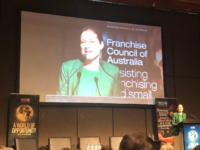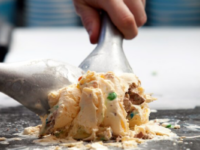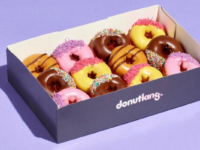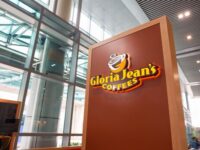Retail Food Group has shown a $111.1m loss for its first half 2019 financial year. This compares to a loss of $87.8m after tax in the previous corresponding period.
The underlying net profit after tax is down from $24.7m to $6.6m this half year.
RFG has suffered outlet closures and declines in new store, resale and renewal activity.
The company cites trading conditions, negative sentiment and restructuring investment as further dampeners on financial performance.
RFG $111m loss but refocus underway
But RFG executive chairman Peter George pointed to a business refocus and astute cost-cutting as signs the company is making the right moves to get the business back on track.
George joined the business late in November 2018. At the time he described its financial position as “unsustainable“.
RFG recently announced it had cut support role and head office jobs. And it’s these cuts that will go some way to deliver annualised cost savings of $20m, George said.
He expects to see an impact on franchisee profitability in the first quarter of FY20.
Right now RFG continues to provide financial help in Australia that offsets franchisee costs such as rising rents under lease arrangements.
However, George said “a lot of work remains to be done to resurrect the financial health and performance of the business.”
Lenders waived the testing of financial covenants for the six month period.
So what will RFG drop?
RFG will close its non-core wholesale bakery business. It plans to make further debt reductions and sell Donut King, Pizza Capers and Crust and confirmed negotiations are ongoing.
RFG closes more than it opens
Ninety three stores closed across Australia; the company approved 74 resales and 29 renewals in the half year to 31 December 2018.
RFG granted two new master franchises overseas. Eleven international outlets opened but these were offset by 139 stores shutting shop.
George has pinpointed the US and UK as potential markets for significant long-term growth.
RFG’s coffee business
RFG said the Di Bella Coffee brand remains crucial in a coffee-driven market but it needs to be streamlined. It will continue to serve the in-house franchise brands while pursuing external sales opportunities.
What 2019-20 looks like for RFG
George outlined a six point plan in the half yearly report:
- Refocus on core retail food brands and coffee distribution; shedding non-core underperforming operations.
- Boost the balance sheet to improve financial stability.
- Realign resources and consolidating supply chains to achieve a more agile business.
- Increase product category extensions and new product campaigns to boost traffic and franchisee revenue.
- Leverage Di Bella Coffee to diversify and grow coffee revenue.
- Leverage a healthy franchise network to encourage new store sales and renewals; capitalise on international potential.
George said some initiatives had been implemented already.
“However the company anticipates the future results will remain subdued whilst retail market conditions remain challenging and the company executes on its restructuring program.”
He forecast an underlying EBITDA of $43m-$48m for FY19.

















